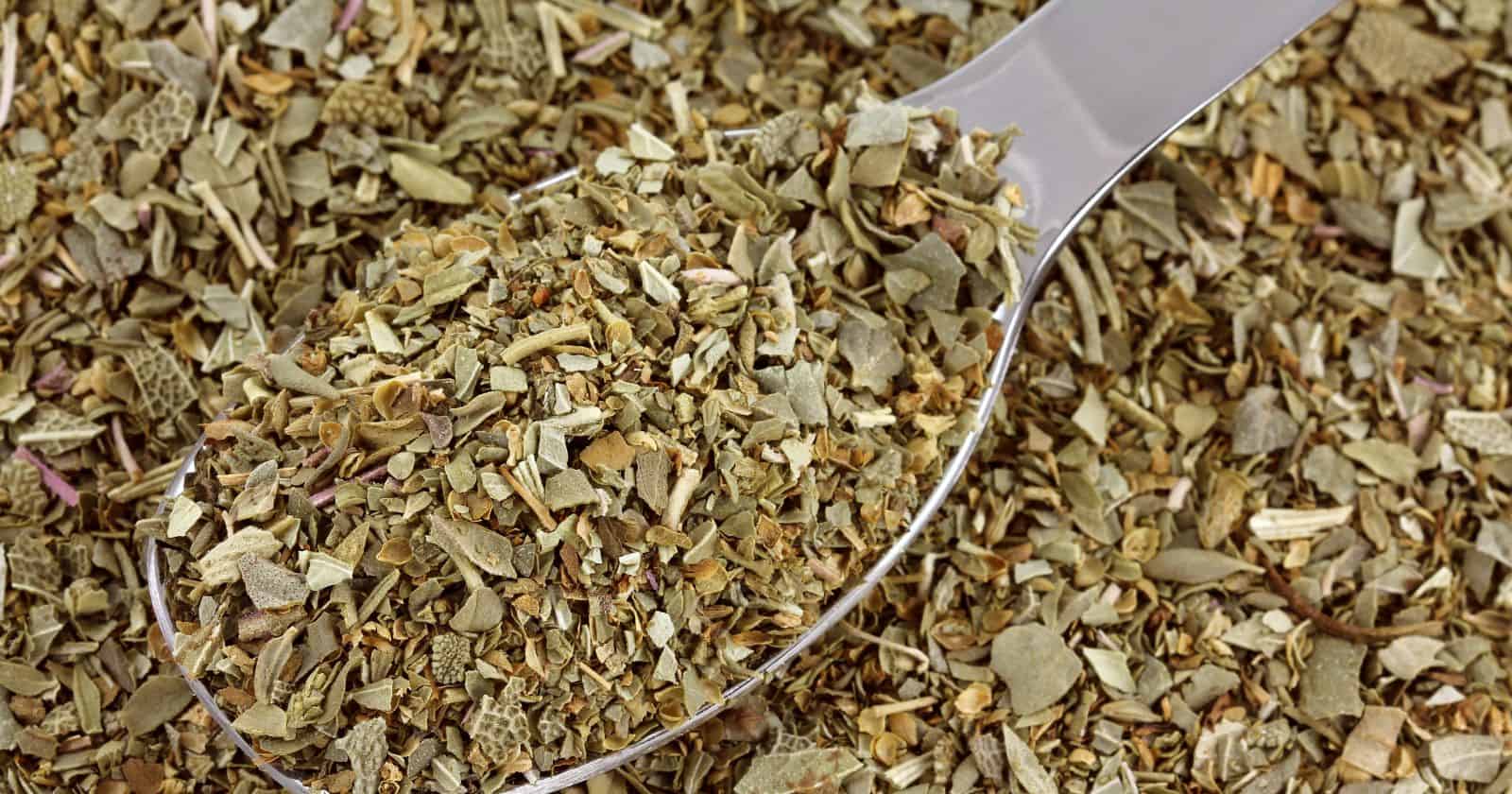Are you tired of bland dishes that lack flavor? Do you need a
Italian seasoning is a blend of dried herbs commonly used in Italian cuisine. It contains oregano, basil, thyme, and rosemary, with sometimes other herbs included. It can be bought pre-made or made at home, and it’s perfect for flavoring pasta sauces, soups, stews, and marinades.
In the following sections of this article, we’ll discuss the benefits of using Italian seasoning, how to use it, and some recipes that will excite your taste buds.
Whether you’re a seasoned cook or just starting in the kitchen, we promise that incorporating Italian seasoning will transform your meals.
The Origins of Italian Seasoning: Where It Comes From and Why It’s Popular
Italian seasoning, a blend of herbs known for its aromatic and flavorful qualities, has been a popular
Some say it originated in Italy, while others believe it was created in America. However, it is known that the herbs commonly used in Italian seasoning have been used for flavoring in culinary history in various regions around the Mediterranean, such as Greece and southern France.
One theory is that Italian seasoning was influenced by the Mediterranean diet, known for using fresh herbs and olive oil. The blend of spices commonly used in Italian seasonings, such as basil, oregano, rosemary, thyme, and sage, was frequently used in Mediterranean cooking to add depth and complexity to dishes.
During the Middle Ages, these herbs were widely used in European monasteries as medicine and flavoring.
Today, Italian seasoning is a popular
Italian seasoning adds a unique and distinctive flavor profile to savory and earthy dishes, making it a must-have in any
What’s in Italian Seasoning: A Breakdown of Its Ingredients
Italian seasoning is a blend of dried herbs widely used in Italian and Mediterranean cuisine to flavor dishes. The seasoning typically combines herbs such as basil, oregano, thyme, rosemary, and marjoram.
Additionally, depending on the recipe or brand of Italian seasoning, some variations may contain other herbs like sage, parsley, or garlic. But what makes each blend unique is the precise ratio of each herb and the quality of their freshness.
Let’s dive deeper into each herb in Italian seasoning and its unique flavor profile:
- Basil: A fragrant herb with a sweet peppery taste and a floral aroma.
- Oregano: A staple herb in Mediterranean cuisine with pungent, slightly bitter flavors and a warm, aromatic scent.
- Thyme: A herb with a robust and earthy flavor that gives depth to the seasoning. It also has antimicrobial and antioxidant properties.
- Rosemary: An evergreen woody herb with an intense pine-like flavor and a minty, balsamic scent.
- Marjoram: A delicate herb with a similar taste to oregano with sweeter notes.
- Sage: A herb with a savory and slightly bitter taste, commonly used in meat dishes and stuffing.
- Parsley: An herb with a fresh, slightly bitter taste and a grassy aroma that adds a bright and refreshing flavor to the seasoning.
When selecting Italian seasoning, choosing a blend of high-quality herbs with a proper ratio is vital to achieving the intended flavor. Moreover, storing the seasoning in a cool, dark, and airtight container can help maintain its freshness and flavor for an extended period.
Benefits of Using Italian Seasoning in Your Cooking
Italian seasoning is a game-changer in adding flavor to your dishes. But did you know that it also has some health benefits? The herbs used in Italian seasoning offer good vitamins and antioxidants. Marjoram, thyme, and basil contain Vitamin K which is vital for blood clotting and bone health.
Thymol, another essential ingredient in thyme, is an antioxidant that helps prevent cellular damage. With Italian seasoning, you can make your dishes taste good and provide some nutritional benefits.
Here are some more benefits of using Italian seasoning in your cooking:
- Lowers inflammation: Basil in Italian seasoning contains compounds that help reduce inflammation. Chronic inflammation can cause various diseases, including heart disease, cancer, and Alzheimer’s. Using Italian seasoning in your meals can help prevent and manage inflammation.
- Boosts immunity: Garlic and oregano in Italian seasoning are known for their immune-boosting properties. Garlic has allicin, a compound that helps fight infections, while oregano has carvacrol, a potent antioxidant that helps protect against free radical damage. Adding Italian seasoning to your meals can support your immune system and keep you healthy.
- Aids digestion: Italian seasoning contains fennel, a herb used for centuries to aid digestion. Fennel helps reduce bloating, gas, and stomach cramps. Adding Italian seasoning to your dishes can help improve digestion and prevent digestive issues.
Delicious Recipes Using Italian Seasoning: From Main Course to Appetizers
Italian seasoning is a magical blend of dried herbs and spices that can elevate any dish to a new level. From savory main courses to bite-sized appetizers, there are various recipes that you can experiment with using this versatile seasoning. Let’s take a closer look at a few of these recipes below:
Main Courses:
- Whole Wheat Pasta Bake: A delicious and healthy recipe that’s perfect for busy weeknights. This baked pasta dish will become a family favorite in no time, featuring whole wheat pasta, marinara sauce, ground beef or turkey, and Italian seasoning.
- Skillet Lasagna: A quick and easy twist on the classic lasagna recipe made entirely on the stovetop. Ground beef, lasagna noodles, marinara sauce, and Italian seasoning are the stars of the dish, which is topped with mozzarella cheese and fresh parsley for added flavor.
- Marry Me Chicken: This tender and flavorful chicken recipe is a crowd-pleaser and can be made in under an hour. Chicken breasts are seasoned with Italian seasoning, paprika, and garlic powder and then baked in a creamy tomato sauce until perfectly cooked.
Appetizers:
- Bruschetta: A classic Italian appetizer that’s easy to make and flavorful. Toasted baguette slices are topped with diced tomatoes, garlic, basil, olive oil, balsamic vinegar, and Italian seasoning. Serve as an appetizer or alongside a bowl of soup or salad for a light meal.
- Meatballs: These savory meatballs are seasoned with Italian seasoning, garlic, and Parmesan cheese for a delicious appetizer or main course option. Serve with marinara sauce and spaghetti for a classic Italian meal, or toss with barbecue sauce for a fun twist.
- Roasted Eggplant Caponata: A Sicilian-inspired appetizer made with roasted eggplant, onions, tomatoes, and olives, all seasoned with Italian seasoning, balsamic vinegar, and honey for a sweet and tangy flavor. Serve as a side dish or on crostini for a tasty appetizer option.
- Italian Pinwheels: These bite-sized appetizers are made with crescent roll dough, cream cheese, ham, salami, provolone cheese, and Italian seasoning. Roll them up, slice them into pinwheels, and bake them for a quick and easy appetizer for parties or game days.
Making Your Italian Seasoning: Tips and Tricks
Making your Italian seasoning is a simple process with just a few steps. You can create a unique blend that suits your taste with some experimentation.
Here are some tips and tricks to get you started:
First, choose your herbs wisely. The essential herbs for Italian seasoning are basil, oregano, thyme, rosemary, and marjoram. But you can also add some other herbs like parsley, sage, or garlic powder, based on your preference.
Once you have decided on your herbs, mix them in equal parts. This step will allow you to experiment with the different combinations of herbs and find the perfect balance of flavors for your tastes. However, remember to adjust the proportions of each
Next, make sure you store your seasoning correctly to maintain its flavor. Place the herb in an airtight container and keep it in a cool, dry place. If stored correctly, your seasoning blend should last several months.
Lastly, feel free to explore new variations of Italian seasoning blends. You may develop an exceptional combination that takes your dish to another level.
Italian Seasoning Substitute
Italian seasoning is a delicious blend of herbs and spices that can add flavor to your dishes! But what if you don’t have any Italian seasoning on hand? Don’t worry; there are many substitutes you can use instead to get that same great taste. Here are some of the best options:
- Mix dried oregano with dried thyme or basil in a 2:1 ratio. This combination creates a similar flavor profile to Italian seasoning and is perfect for pasta dishes and soups.
- Combine dried oregano, dried basil, and dried thyme in equal parts. This combination is similar to the classic Italian seasoning blend and can be used in various dishes.
- Use Herbes de Provence, a blend of herbs, including many of the same herbs found in Italian seasoning. This blend is perfect for roasted meats and vegetables.
Of course, if you have herbs like basil, parsley, oregano, thyme, rosemary, marjoram, or sage on hand, you can also use those. Just choose the spices you like and combine them to create a custom seasoning blend that is perfect for you.
If you’re looking for a quick and easy substitute, combine garlic powder, onion powder, paprika, and pepper to achieve a similar flavor profile. This blend works well in pasta dishes and soups.





